Wildlife photographer Pang Way shoots a lot from up close. Mostly, little critters that don’t normally catch our attention and that are so small, we walk right past them without even noticing them.

A big and important part of Way’s work is mantises or praying mantises like people like to call them. They got this name for their prominent front legs, which are bent and held together at an angle that suggests the position of prayer.
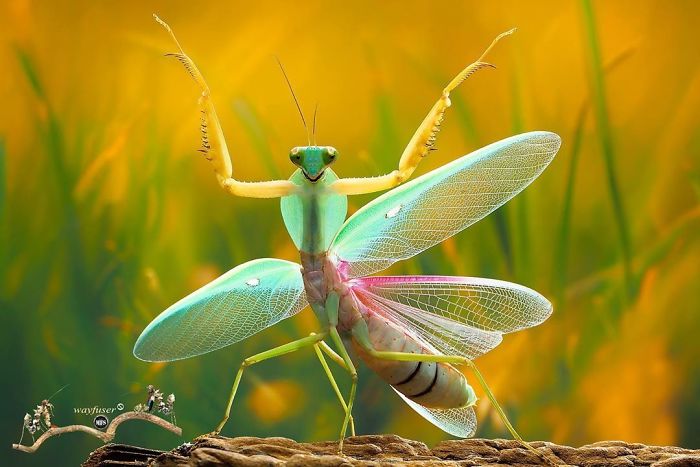
Typically green or brown and well camouflaged in their surroundings, mantises lie in ambush or patiently stalk their quarry. They use their front legs to snare their prey with reflexes so quick that they are difficult to spot with the naked eye. Their legs are further equipped with spikes for snaring prey and pinning it in place. Few photographers have portrayed just how stunning these little berserk fellas are. And Way is one of them. Continue scrolling and enjoy these fascinating pics.
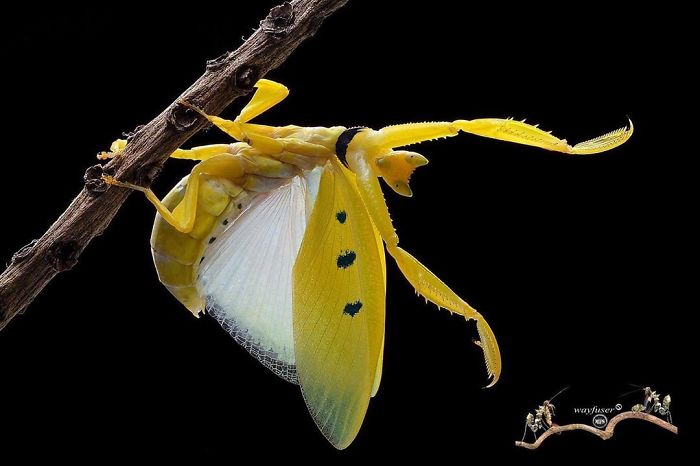
Typically green or brown and well camouflaged in their surroundings, mantises lie in ambush or patiently stalk their quarry. They use their front legs to snare their prey with reflexes so quick that they are difficult to spot with the naked eye. Their legs are further equipped with spikes for snaring prey and pinning it in place. Few photographers have portrayed just how stunning these little berserk fellas are. And Way is one of them. Continue scrolling and enjoy these fascinating pics.
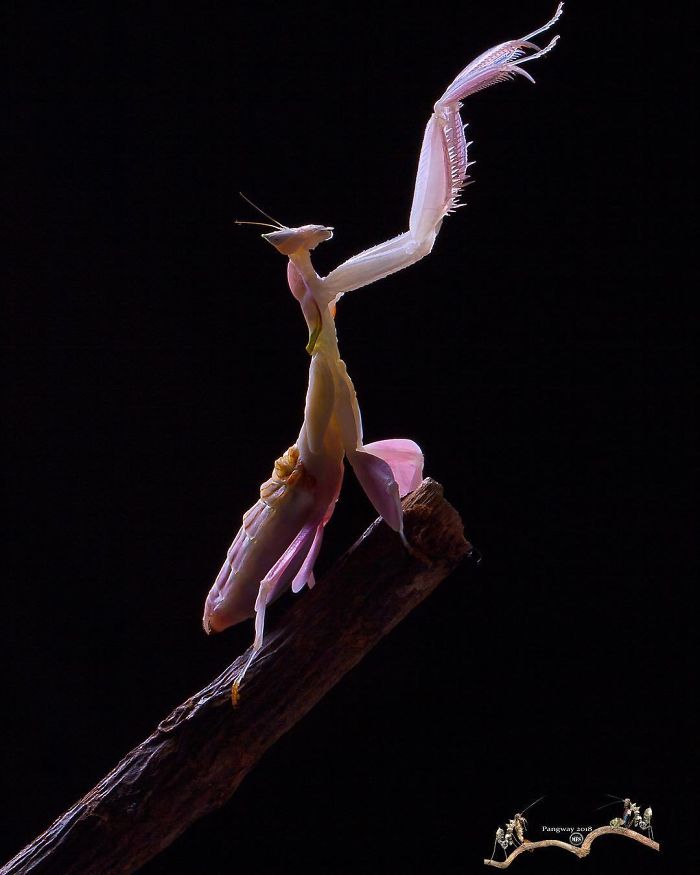
It’s usually the moths, crickets, grasshoppers, and flies who receive unwanted mantid attention. However, these brutal insects will also eat others of their own kind. What really stands out is the mating behavior of the adult female, who sometimes eats her mate just after—or even during—mating. In their defense, however, this ‘fetish’ seems not to deter males from participating in reproduction.
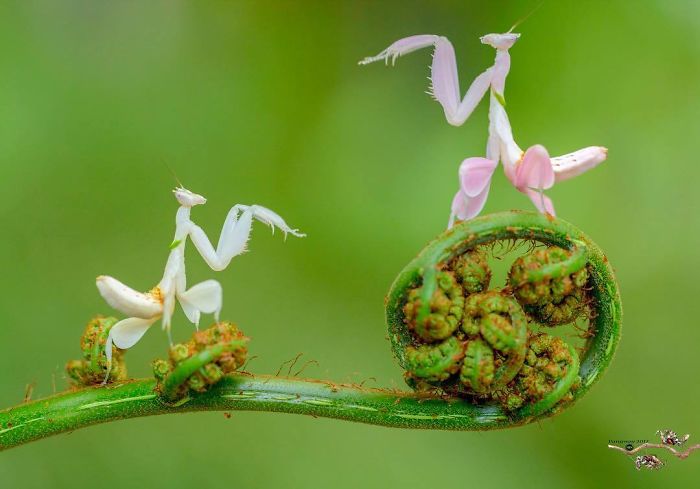
I mean, maybe it’s a sacrifice they make willingly. A 2016 study found that when female Chinese mantises consume their mates, they acquire important amino acids that are then incorporated into the eggs they lay, appearing to lay twice as many eggs after cannibalizing a male than they normally would.
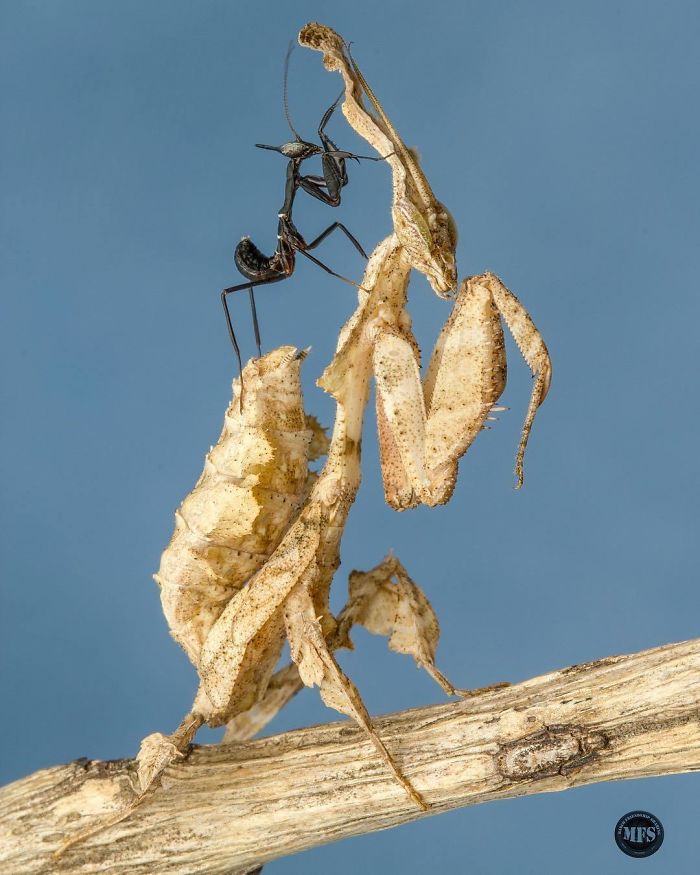
So while the male would probably like to live and mate with multiple females, at least his death is not in vain; his nutrients give his DNA an elevated chance of getting passed on to the next generation. As for humans, we shouldn’t be afraid of their saw-like arms and alien eyes; they pose no threat to those who aren’t insects, geckos, or hummingbirds.
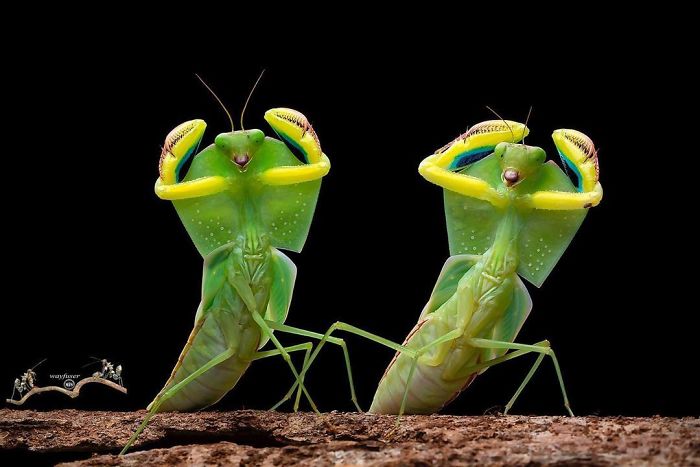
What is the praying mantis? The praying mantis is named for its prominent front legs, which are bent and held together at an angle that suggests the position of prayer.
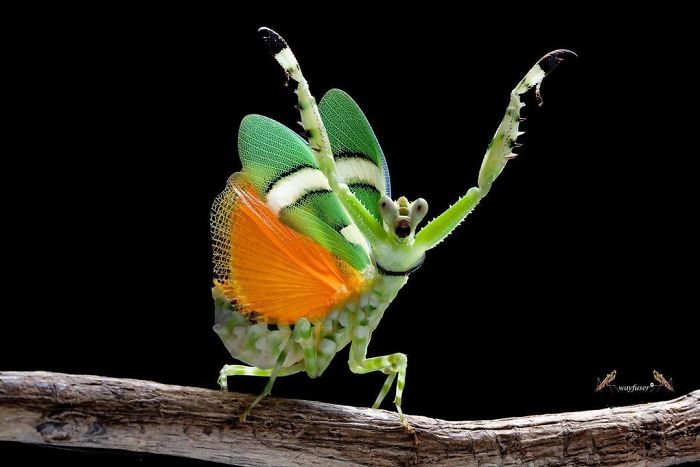
Hunting Adaptations By any name, these fascinating insects are formidable predators. They have triangular heads poised on a long “neck,” or elongated thorax. Mantids can turn their heads 180 degrees to scan their surroundings with two large compound eyes and three other simple eyes located between them.
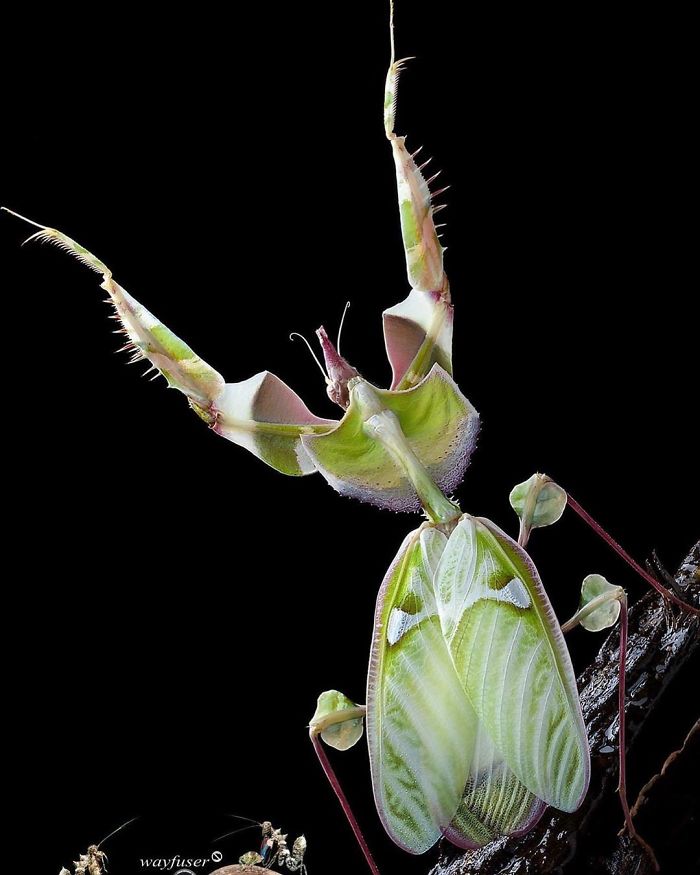
Typically green or brown and well camouflaged on the plants among which they live, mantis lie in ambush or patiently stalk their quarry. They use their front legs to snare their prey with reflexes so quick that they are difficult to see with the naked eye. Their legs are further equipped with spikes for snaring prey and pinning it in place.
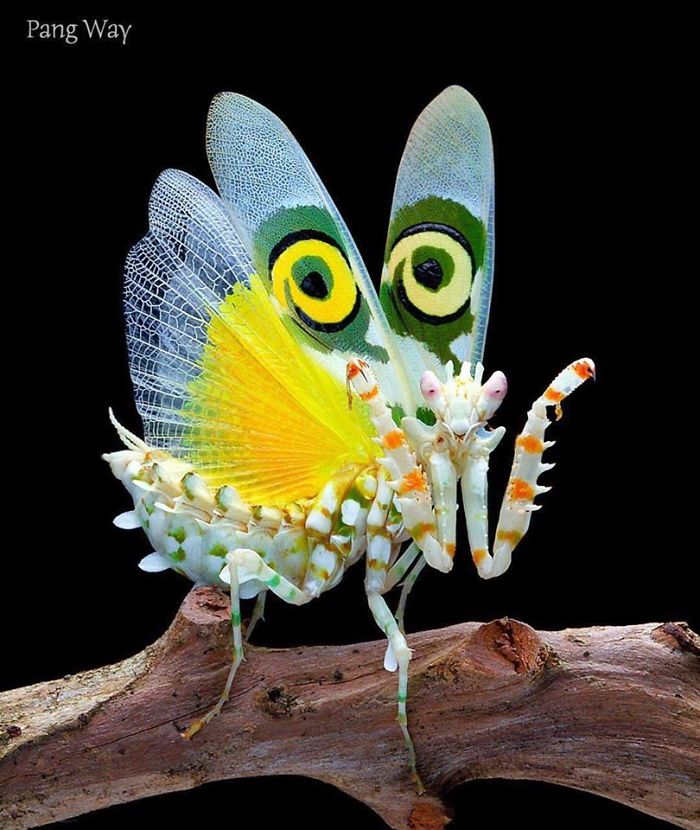
Breeding And Behavior Moths, crickets, grasshoppers, flies, and other insects are usually the unfortunate recipients of unwanted mantid attention. However, the insects will also eat others of their own kind. The most famous example of this is the notorious mating behavior of the adult female, who sometimes eats her mate just after or even during mating. Yet this behavior seems not to deter males from reproduction.